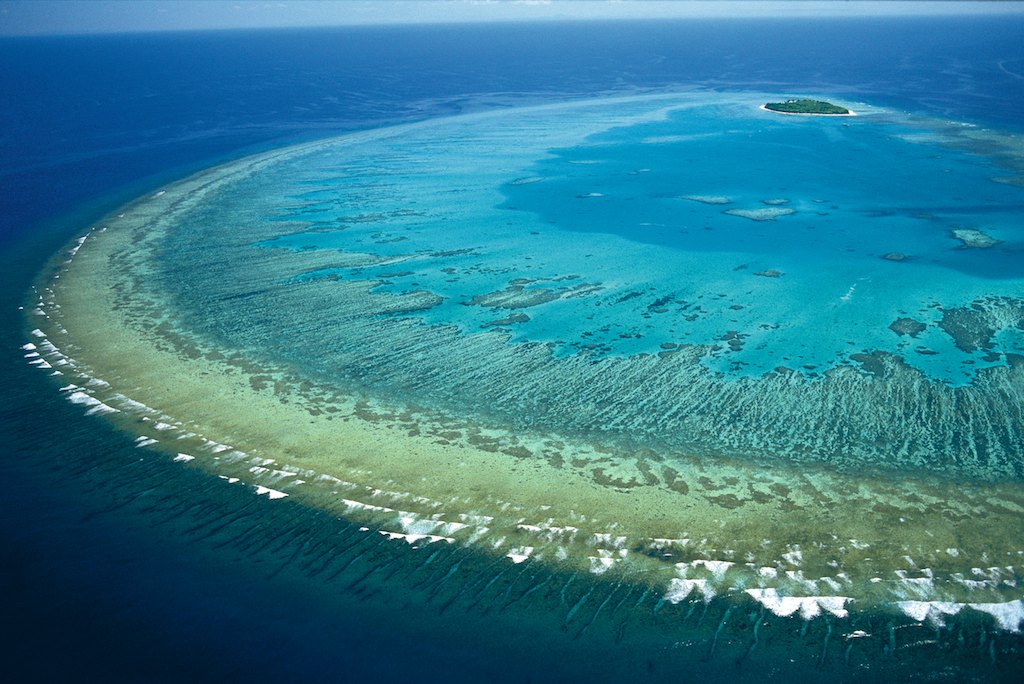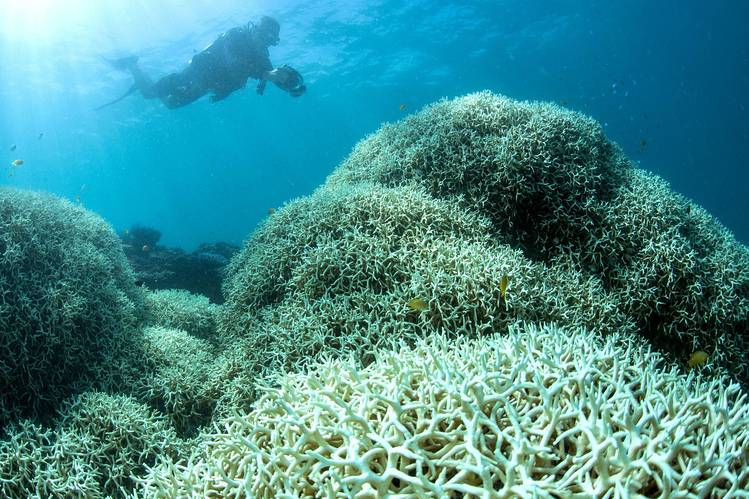Can you cut 1 Tonne of carbon pollution out of your life?
Take the challenge1 Million Women is calling for broad political agreement across party lines at the 2016 Australian election, and beyond, for urgent and sustained action on: Climate change, protection of the Great Barrier Reef, and a commitment to gender equality. Please sign our open letter to candidates here. Let your voice be heard.
Written by Shana Gallagher
When you think of the largest living thing on earth, what comes to mind? An elephant? A eucalyptus tree? The answer is in fact the Great Barrier Reef, our very own awe-inspiring and miraculous natural resource. The reef is home to thousands of marine species, a crucial means of storm protection, a cultural icon, and a massive source of eco-tourism revenue.
The reef is intrinsic to Australia's national identity, as well as many of the ancient lifestyles and traditions of aboriginal communities. Paradoxically, the government has neglected reef protection and conservation for many years, at the tragic expense of the reef and all the life that livelihoods that depend on it. It is crucial that this election cycle holds our politicians accountable, and brings change for the Great Barrier Reef, as avoiding its threatened state and our responsibility to defend it will represent a tragic and irreversible loss.

Image: Steve Parish
Despite making up only 1% of the ocean floor, coral reefs support over 25% of all marine life. Biodiversity is crucial to humanity's survival, and is increasingly important in terms of ecosystem resilience as climate change continues to intensify. Furthermore, 'The United Nations Convention on Biological Diversity', notes that, 'at least 40% of the world's economy and 80% of the needs of the poor are derived from biological resources' Countless communities and industries, from fishing to shipping to tourism, rely on the Great Barrier Reef. Reefs also provide an important source of storm and erosion protection for coastal areas; damage such as seen in Sydney's northern beaches just last week can only worsen as the reef is more and more degraded.
Read more:How Does Climate Change Affect Housing?
Coral reef ecosystems are extremely vulnerable to the threats of climate change: ocean acidification and coral bleaching are the two main challenges corals face based on rising CO2 concentrations and ocean temperatures. The Great Barrier Reef is currently experiencing a historical bleaching event; in April, over 93% of the reef was affected.
Read more: Why is everyone talking about coral bleaching?

Image: XL Catlin Seaview Survey
Though some parts of the reef have recovered, recent research revealed that a "third of coral on the northern and central parts of the reef are dead"). Especially considering that over 85% of Australians live near the coast the perilous condition of the reef can and should be seen as a national emergency.
In 1979, the Commonwealth and Queensland governments signed the Emerald Agreement - now known as the Great Barrier Reef Intergovernmental Agreement - promising to "protect and manage the Reef".
"With the development of the Reef 2050 Long Term Sustainability Plan, governments agreed on a vision for the future and renewed their commitment to protecting the Great Barrier Reef World Heritage Area including its Outstanding Universal Value. This agreement establishes these arrangements, clearly articulating objectives, respective functions and accountabilities". The reef is managed as a network of marine sanctuaries, and although there are plans for increases in these protected areas, "as of 2004, only 4.6% of the reef was fully protected".
Despite the benefits of sanctuaries for some marine species, no level of protection can prevent the disastrous impacts of increasing temperatures and acidity from destroying reefs. A genuine effort to protect the Great Barrier Reef will need to account for worsening climate change, and aim to reduce greenhouse gas emissions as well as establish reserves. There has been a direct link established between the government's reliance on coal and the declining health of the reef, and the Queensland government's recent approval of the world's largest coal mine in vulnerable areas will only further undermine reef health .
The very short-term profits associated with coal will not compensate for the horrifying ecological, cultural, and financial losses that would be caused by the destruction of the Great Barrier Reef.- -
Our government seems to somewhat understand this - they recently removed a chapter from a climate report describing the poor health of the reef in order to spare tourism - and yet are not acting with the urgency needed to save this great national treasure. For example, a "Climate Change Authority report recommending a 'mandatory carbon price'" has been delayed for release until after the election, clearly indicating the resistance to the hard-hitting climate legislation and action we need.
Our country stands to lose irreplaceable wildlife, cultural value, and money if we do not protect the Great Barrier Reef. Just last week, Malcolm Turnbull made a half-hearted attempt to be seen acting to do so, and "promised $1 billion to clean up and preserve the Great Barrier Reef". However, this funding will only channel existing money from the Clean Energy Finance Corporation away from renewable energy and towards reef conservation. According to Greens deputy leader Larissa Waters, "this is a sneaky attempt by the Turnbull Government to try to distract from the damage it is doing to the Reef by approving coal mines to export out through the Reef and cook its corals" and has been called "the biggest ever con job" by Mark Butler, Labor's shadow environment minister.
"this is a sneaky attempt by the Turnbull Government to try to distract from the damage it is doing to the Reef by approving coal mines to export out through the Reef and cook its corals"- Larissa Waters
As the election approaches, it is clearly up to voters like us to make sure our elected representatives prioritise reef conservation. This means reducing greenhouse gas emissions, greater marine protection, and overall policies to address climate change. Make sure you do your part by letting politicians know that your vote depends on their commitment to the climate!
